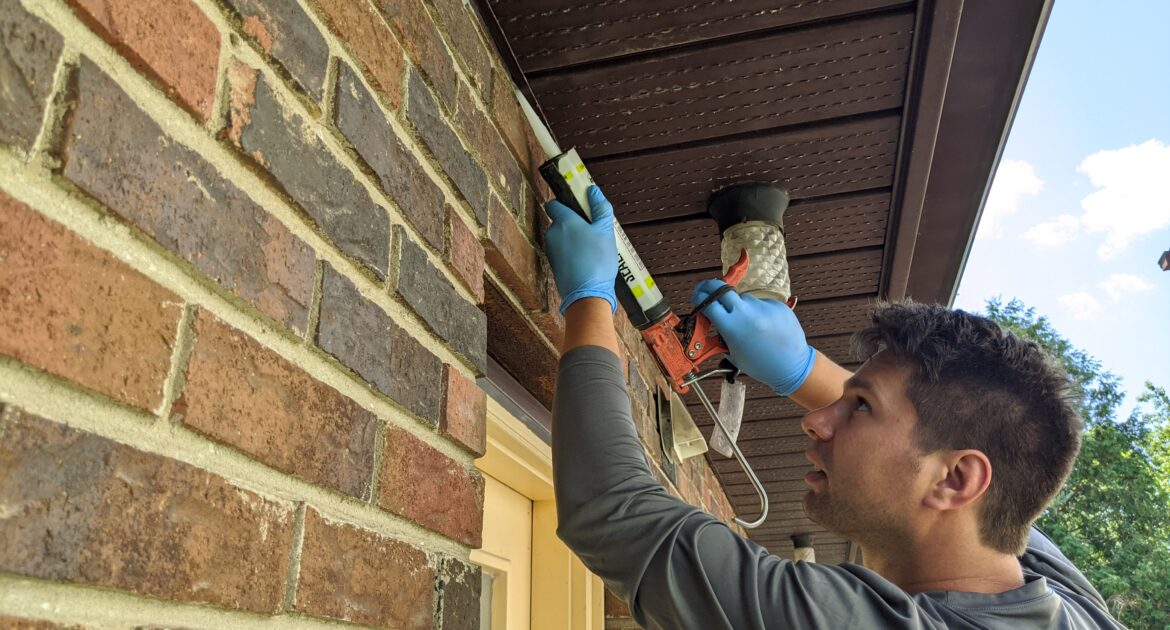Mice create many problems for homeowners in Richmond Hill despite their tiny size. The main issue with mice is they reproduce quickly, growing colonies so rapidly that homeowners are dealing with an infestation before they know it. Learning how to mouse-proof a house is the key to prevention.
Mouse-proofing your home is not as challenging as it may sound. You mainly want to practice diligence in maintenance and cleanliness. While cleanliness does not eliminate all risks of mice infestations, it can significantly reduce them.
4 Tips To Keep Your Home Mouse-Free
The key to mouse-proofing is learning how to keep mice away from your house and property. Many homeowners don’t see how it is possible to keep mice away because they are small, nocturnal creatures and rarely seen. If you can’t see something, how can you protect against it?
Mice are not spectres. They do not haunt your property or have supernatural abilities. They are solid entities like all living things, and like all living things, they have motivations and survival instincts. Understanding the animals’ survivalist traits and natural behaviours helps to develop a prevention plan.
A mouse is a small, fragile creature. It is a prey animal. As such, its nature is given to hiding and scurrying near boundaries and under cover of leaves, grass, sticks, or clutter. Anything you can do to eliminate coverage or to ensure your property is not a haven reduces the risk of an infestation.
Also, mice need a sustainable food and water supply like all living things. It is challenging to eliminate water sources because mice do not need much of it to survive. That said, you can eliminate food sources, including bird feeders and pet food dishes outside.
Every home has a slight chance of mice infestations, regardless of cleanliness and maintenance. Still, you can use four proven prevention methods to reduce the odds of an infestation.
1. Seal Cracks and Holes
Mice have small, flexible bodies that can fit through small openings, about the diameter of a pen body. You can protect your house by walking the exterior and inspecting for and filling in small holes and cracks. It is challenging to spot all potential openings, so hiring a wildlife control professional is beneficial.
2. Maintain a Clean and Tidy Living Space
One element of keeping your home mouse-free that you cannot ignore is cleaning. Mice do not need a lot of food to survive; food scraps and crumbs can sustain them. After every meal, wipe down surfaces and sweep or vacuum floors. At least once or twice weekly, thoroughly vacuum and clean to ensure all surfaces are spotless.
Also, keep your yard raked and cut. Mice love tall grass and leaf coverage because it hides them from predators.
3. Reduce Clutter Inside and Out
As is their nature, mice like to hide. By eliminating clutter inside and outside of the home, you effectively remove hiding places. Clutter includes cardboard boxes, stacks of books or magazines, yard waste, wood piles, and anything else that does not serve a purpose or belong in your yard.
4. Secure Food and Trash
As an experienced service of mice removal in Richmond Hill, Skedaddle Humane Wildlife Control suggests if you have bird feeders on your property, clean around the bases of the feeders daily. Mice will feast on fallen seed. Also, Do not feed pets outside if you can avoid it. Finally, store garbage in cans with tight-fitting lids.
Keep Your Home Mouse-Free With Skedaddle’s Help
Knowing how to mouse-proof a house on your own is helpful, but it is possible to miss small entries or other vulnerabilities. A trained professional can more easily assess an entire property to significantly reduce infestation risk. Contact Skedaddle Humane Wildlife Control if mice are active around your property or if you believe they are already inside your house.




